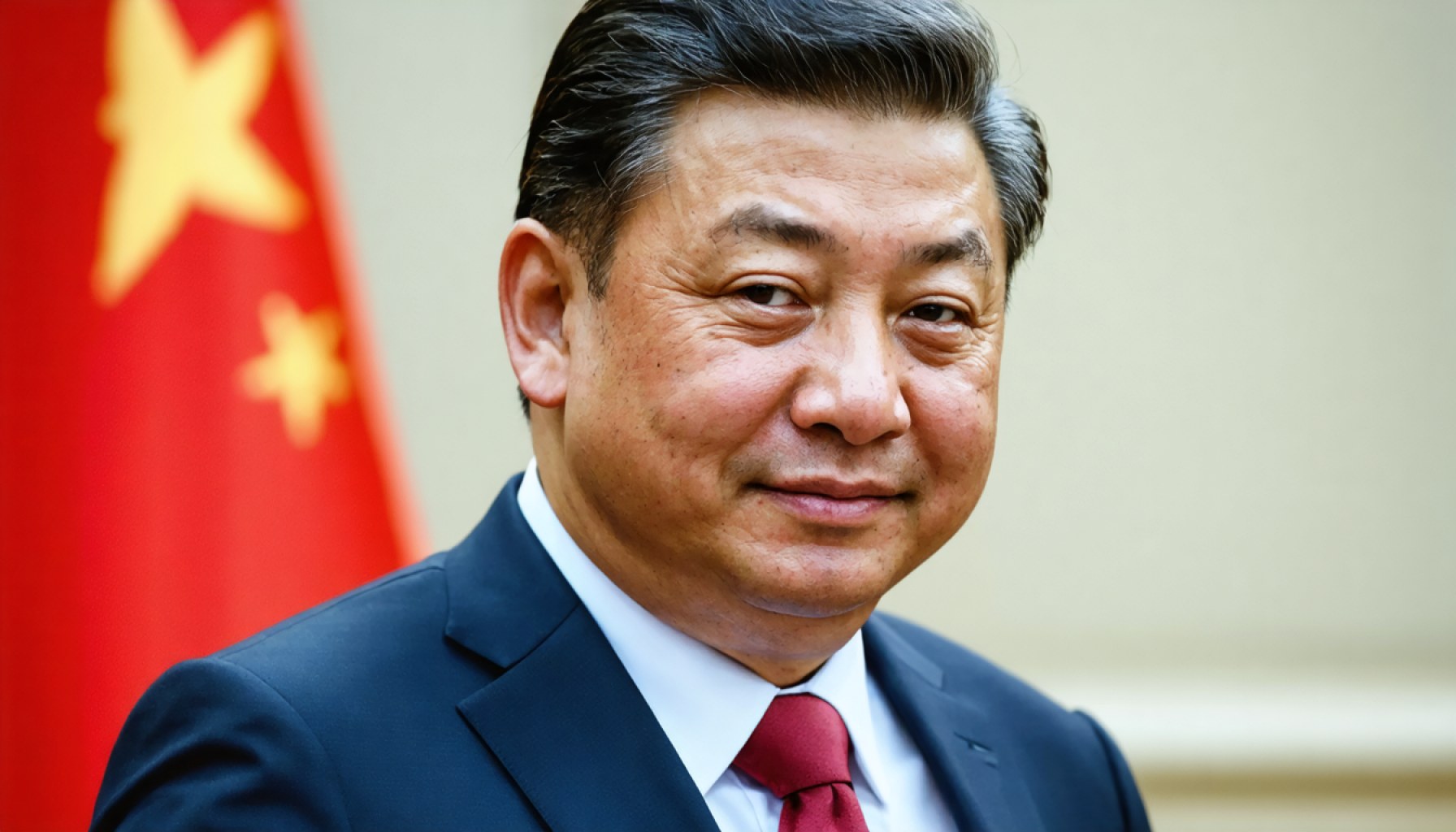- A major investigation targets Jian Chaoliang, a senior Chinese government figure, for alleged misconduct.
- The Central Commission for Discipline Inspection leads the probe, focusing on Jian’s role as vice-chairman of the Agriculture and Rural Affairs Committee.
- Jian has held significant positions, including governor of Jilin Province and party secretary of Hubei Province.
- The allegations present a stark contrast to Jian’s previously storied career and achievements.
- This investigation reflects the Chinese government’s commitment to transparency and accountability amidst national reforms.
- The situation raises questions about potential reforms and the future of leadership within China’s political hierarchy.
- The case underscores the importance of integrity and vigilance in maintaining public trust.
A significant probe has shaken the political landscape in China, with startling revelations about alleged misconduct by a senior government figure. As the crisp winter air sweeps across the nation, eyes turn to the Central Commission for Discipline Inspection. The commission has cast a spotlight on Jian Chaoliang, a seasoned politician and current vice-chairman of the Agriculture and Rural Affairs Committee.
Jian’s storied career, spanning decades, saw him as a former governor of Jilin Province and the influential party secretary of Hubei Province. The countryside, now at the center of his obligations, has been overshadowed by these allegations, bringing to light issues that could ripple across the Communist Party’s hierarchy.
Born in the summer of 1957, Jian witnessed China’s transformative journey firsthand, ascending the political ranks with steadfast determination. Yet, now he stands accused of serious disciplinary breaches, a stark contrast to his past achievements. The investigation conducted by the Central Commission hints at a commitment to transparency and accountability amidst a backdrop of national reforms.
As the inquiries proceed, the nation holds its breath, contemplating the implications. Will this probe mark a new chapter in governance, emphasizing integrity and vigilance? The broader society watches closely, with the hope that this ordeal heralds a moment of reform and reinforces a system that demands the highest standards from its leaders.
The unfolding story of Jian Chaoliang serves as a compelling reminder of the unwavering dedication needed to uphold public trust. A pertinent question now echoes: how will this narrative influence the future of leadership within China’s complex political tapestry?
The Unfolding Drama in China’s Political Theater: What Jian Chaoliang’s Investigation Means for the Future
How The Investigation Process Works in China
How-To Steps & Life Hacks
1. Initiation of the Investigation: Generally begins with an anonymous report or internal whistleblowing about potential wrongdoing.
2. Preliminary Review: The Central Commission for Discipline Inspection (CCDI) reviews evidence and conducts informal monitoring.
3. Formal Inquiry: If initial findings are compelling, a formal investigation is launched, which may include interviews, physical surveillance, and financial scrutiny.
4. Announcement of Results: After conclusion, findings are publicly announced, and corrective measures are taken, ranging from censure to legal prosecution.
5. Possible Outcomes: Officials may face dismissal, expulsion from the Communist Party, or legal actions like fines or imprisonment.
Life Hack: Understanding China’s complex political processes can help in interpreting future political developments and anticipating policy changes.
Real-World Use Cases
Impact on Governance and Policy:
– Reinforcement of Anti-corruption Measures: This probe underscores the CCP’s unwavering stance against corruption, potentially ushering a more stringent regulatory landscape.
– Improved Transparency: Encourages local governments and officials to adhere to clearer, stricter guidelines for ethical behavior, greatly affecting public services and resource distribution.
Market Forecasts & Industry Trends
Economic Implications:
– Political Stability and Market Confidence: A strong anti-corruption drive can stabilize financial markets by enhancing investor confidence.
– Sector-specific Effects: Sectors like agriculture, where Jian Chaoliang was actively involved, may undergo audits or reforms, impacting productivity and operations.
Reviews & Comparisons
Comparative Analysis:
– Global Perspective on Anti-Corruption Drives: China’s approach might be compared with other countries’ anti-corruption strategies, highlighting unique features and potential weaknesses.
Controversies & Limitations
Critical Analysis:
– Potential Political Motive: Skeptics might view the probe as politically motivated, raising questions about internal power dynamics and factional rivalries within the Party.
– Limitation of Scope: Some argue that while focusing heavily on individuals, broader systemic issues might remain unaddressed.
Features, Specs & Pricing
Specifics of the CCDI:
– Structure and Functionality: The CCDI functions as a powerful body within the CCP, tasked with maintaining discipline and integrity among officials. Its operations extend across various governmental layers to ensure comprehensive oversight.
Security & Sustainability
– Long-term Governance: Sustainable political reforms may result from the probe, contributing to a more secure and fair governing system.
Insights & Predictions
1. Potential for Stronger Reforms: If the outcome of this investigation leads to significant punishments or legislative changes, it could serve as a catalyst for broader reforms.
2. Leadership Caution: Political leaders may exercise increased caution in policy and financial decisions, potentially altering governance styles.
Tutorials & Compatibility
Compatibility with Political Reforms:
– Harmonizing with National Goals: The investigation is likely to align with national goals of reform and modernization, emphasizing harmonious growth and political stability.
Pros & Cons Overview
Pros:
– Reinforces anti-corruption framework.
– Potential for improved transparency and governance.
Cons:
– Possibility of alleged political exploitation.
– Risk of overshadowing significant policy discussions.
Actionable Recommendations
– Stay Informed: Regularly consult reliable sources such as New York Times and Financial Times for updates.
– Analyze Outcomes: Identify patterns and governmental responses to predict future policy trends.
– Engage in Dialogue: Engage with experts or join forums discussing implications for a comprehensive understanding.
This situation serves as a crucial reminder of the delicate equilibrium between power and responsibility. As China navigates its anti-corruption journey, stakeholders must remain vigilant, informed, and proactive, understanding that governance shrouded in confidence and integrity will drive sustainable progress.
